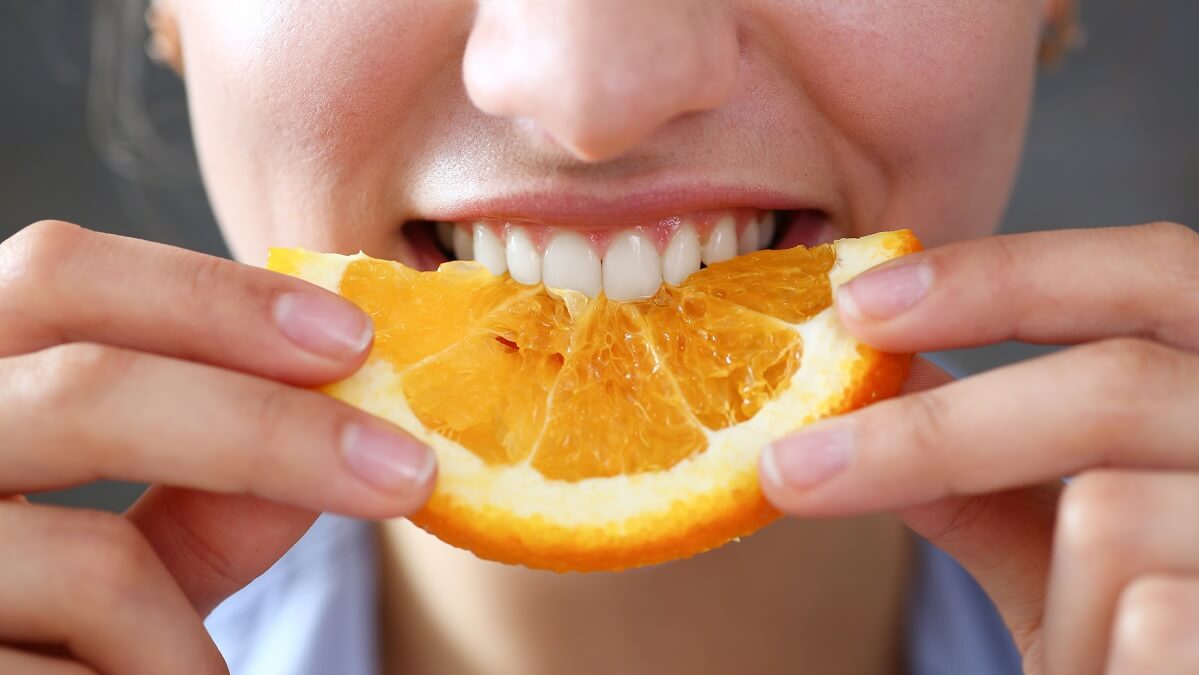Consider the orange.
It’s an everyday fruit, but it punches way above its weight in the health stakes.
A single orange provides enough for your required daily dose of vitamin C and, according to Webmd.com, also has only 250 kilojoules, no fat or salt, 3g of fibre, 12g of sugar, 6 per cent of your daily recommended amount of calcium and 15g of carbohydrates.
The vitamin C alone in oranges provides plenty of health benefits including:
- helps your body produce collagen, a protein that heals wounds and gives you smoother looking skin
- makes it easier to absorb iron if you are taking iron tablets to fight anaemia
- boosts the immune system
- fights inflammation
- slows the advance of age-related macular degeneration, a leading cause of vision loss
- helps fight cancer-causing free radicals
- fights anxiety by lowering the stress hormone cortisol and your blood pressure.
Read: Vitamin linked to lower melanoma risk
A lack of vitamin C causes scurvy, a disease that can be fatal if left untreated.
In history, according to Wikipedia, it is estimated to have killed at least two million sailors, more than any other diseases combined on the high seas, and that figure includes deaths from combat, storms, disasters and shipwrecks. The Portuguese explorer Ferdinand Magellan reportedly lost 208 out of 230 sailors on one voyage, mainly to scurvy.
Part of Captain Cook’s success as a mariner was that he kept scurvy at bay by insisting his sailors’ diet included an orange extract.
There is evidence sailors and crusaders knew the curative effects of eating citrus fruits as far back as the 15th century, but the practice wasn’t widely accepted until the 20th century.
Oranges are also a great source of folate, which can prevent birth defects, so it’s an especially important vitamin for pregnant women, or women trying to have babies.
Read: Do your joints go snap, crackle and pop?
The citric acids in oranges are also helpful in preventing kidney stones.
However, can you have too much of a good thing?
Well, too many orange and vodkas obviously. But there are other disadvantages to eating oranges. The most common is probably the fact that the high acid levels can exacerbate heartburn, but there are also more serious issues.
If you are taking beta-blockers, too many oranges could increase your potassium intake and lead to kidney damage and if your body stores more iron than it needs, high doses of vitamin C can add more iron and damage your tissues.
However, doses at this level are usually only possible through supplements. Generally, an orange a day will not cause such problems.
Read: Why the last five kilos are the hardest and what to do
Oranges were originally grown in the area encompassing southern China, north-east India and Myanmar and are one of the most cultivated trees in the world, mostly in warmer climates.
And a fun fact, the colour was named after the fruit, not the other way around.
There are many different varieties of oranges, but the main ones grown in Australia are the navel and Valencia. You can tell the difference by the fact that navels have a closure at the bottom of the fruit that resembles a belly button, hence the name.
Valencias generally have a slightly greener tinge to the skin of the fruit. As a result, they are less popular with consumers, who prefer the classic all-over orange colouring of a navel orange.
Are oranges a part of your everyday diet? Do you enjoy them juiced or whole? Why not share your tips in the comments section below?
Health disclaimer: This article contains general information about health issues and is not advice. For health advice, consult your medical practitioner.

